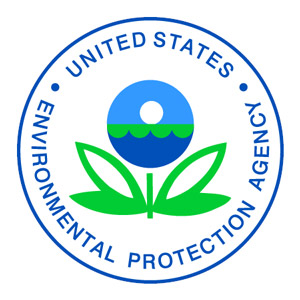
LOGO: EPA
Pest management professionals (PMPs) have had to make adjustments during the coronavirus pandemic. Certainly, the ways in which PMPs receive certification and training for pesticide application have changed, thanks to state mandates limiting group gatherings and closing testing centers.
On July 27, the U.S. Environmental Protection Agency (EPA) issued guidance to the state lead agencies overseeing pesticide applicator certification. This allows the agencies to make modifications while maintaining compliance with federal certification and training rules.
Under the Federal Insecticide, Fungicide, and Rodenticide Act (FIFRA), anyone who applies or supervises the application of restricted-use pesticides (RUPs) must be certified according to EPA regulations and state laws.
The guidance is temporary and designed to be followed during the current COVID-19 public health emergency. It offers a “framework of flexibility” that includes options and processes for making modifications at least until Dec. 31, 2020, although the EPA says it will monitor developments and announce any changes to this time period at least seven days in advance.
WHAT IS NOW ALLOWABLE
Typically, the EPA must approve changes to a state lead agency’s pesticide applicator certification plan. However, the guidance stipulates it will temporarily preapprove modifications if they are:
- Limited to no later than Dec. 31, 2021, and revocable within 90 days or fewer if the EPA determines the modification is no longer appropriate.
- Consistent with pesticide labeling.
- Consistent with the Certification of Pesticide Applicators rule.
- Will not significantly diminish applicator competency.
- Will not undermine future certification activities.
The following modifications are preapproved by the EPA if they meet the above criteria:
- Rely on training or testing conducted by, or approved by, another certifying authority for applicator certification or recertification.
- Offer remote (e.g., internet-based) testing or testing administered by a third party as long as the requirements of the Certification of Pesticide Applicators rule part 171.103 related to exam administration and security are satisfied.
- Offer remote (e.g., internet-based) training rather than, or in addition to, face-to-face training for applicator certification or recertification.
- Extend the duration of the certification or recertification period so those with expiring certifications would still have a valid certification,
so long as no certification extends beyond five years, per the Certification of Pesticide Applicators rule
part 171.107(a). - Make the certification program consistent with the Certification of Pesticide Applicators rule part 171, when a state lead agency’s existing requirements are more stringent than those of the Certification of Pesticide Applicators rule part 171, including:
- Suspending any or all certification requirements for applicators of general use pesticides (i.e., non-RUPs).
- Allowing use of RUPs under the direct supervision of a certified applicator in accordance with the Certification of Pesticide Applicators rule part 171.201.
The EPA says it still must grant approval in advance when “substantial” modifications do not meet the conditions above. It says it probably would not approve modifications inconsistent with pesticide labeling “and/or would significantly diminish applicator competency or undermine future certification activities,” such as:
- Waiving initial certification requirements for applicators of RUPs.
- Waiving pesticide label requirements (e.g., product-specific training or certifications).
- Providing online exams that compromise the exam’s integrity or security (e.g., discloses exam questions).
The National Pest Management Association says the EPA’s guidance will help state lead agencies implement modifications to their programs that will ensure the pest management industry can continue to provide essential pest control services during the COVID-19 pandemic.
Contact your state pest control association for information about certification exams in your area.
Leave A Comment